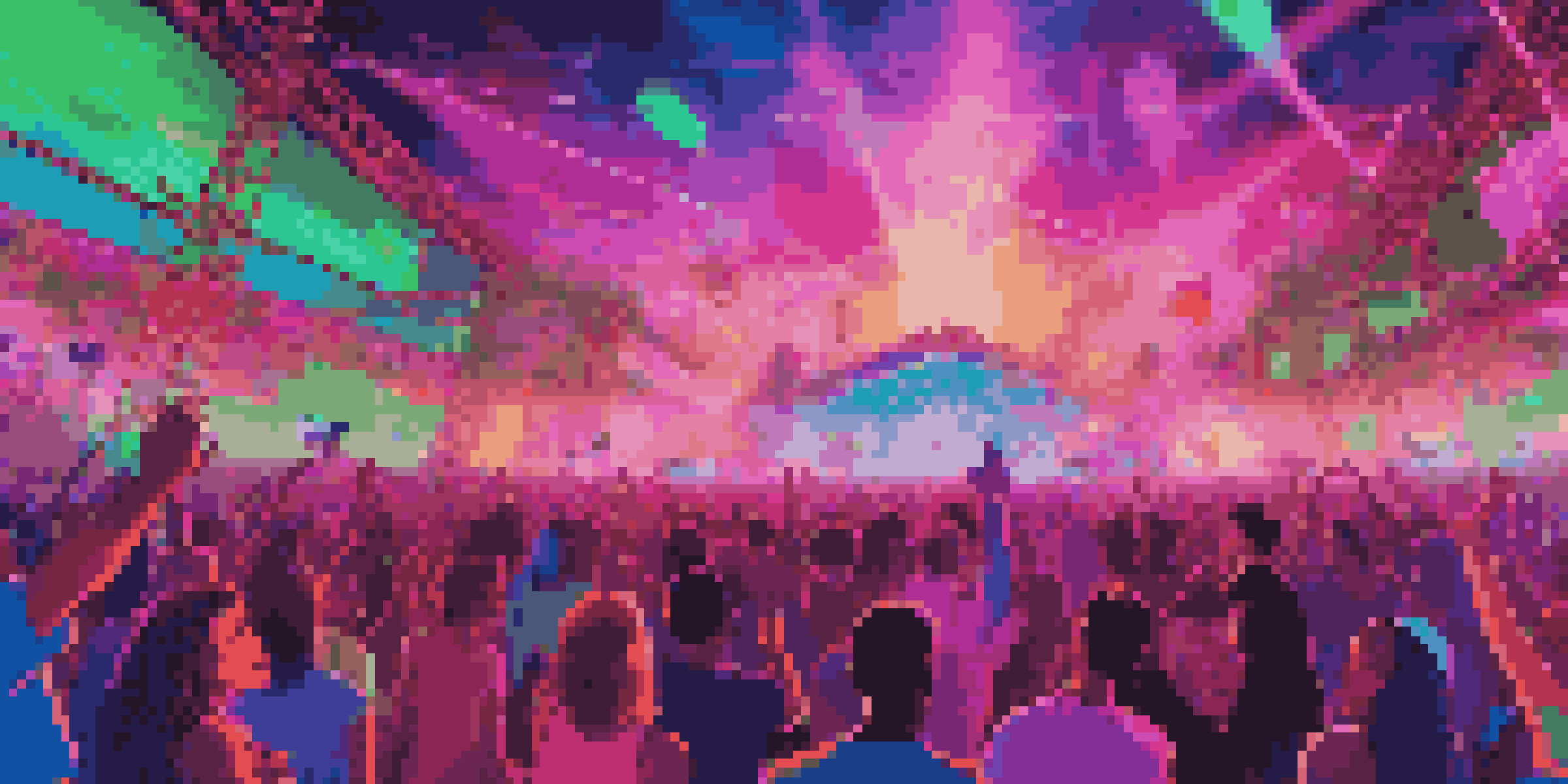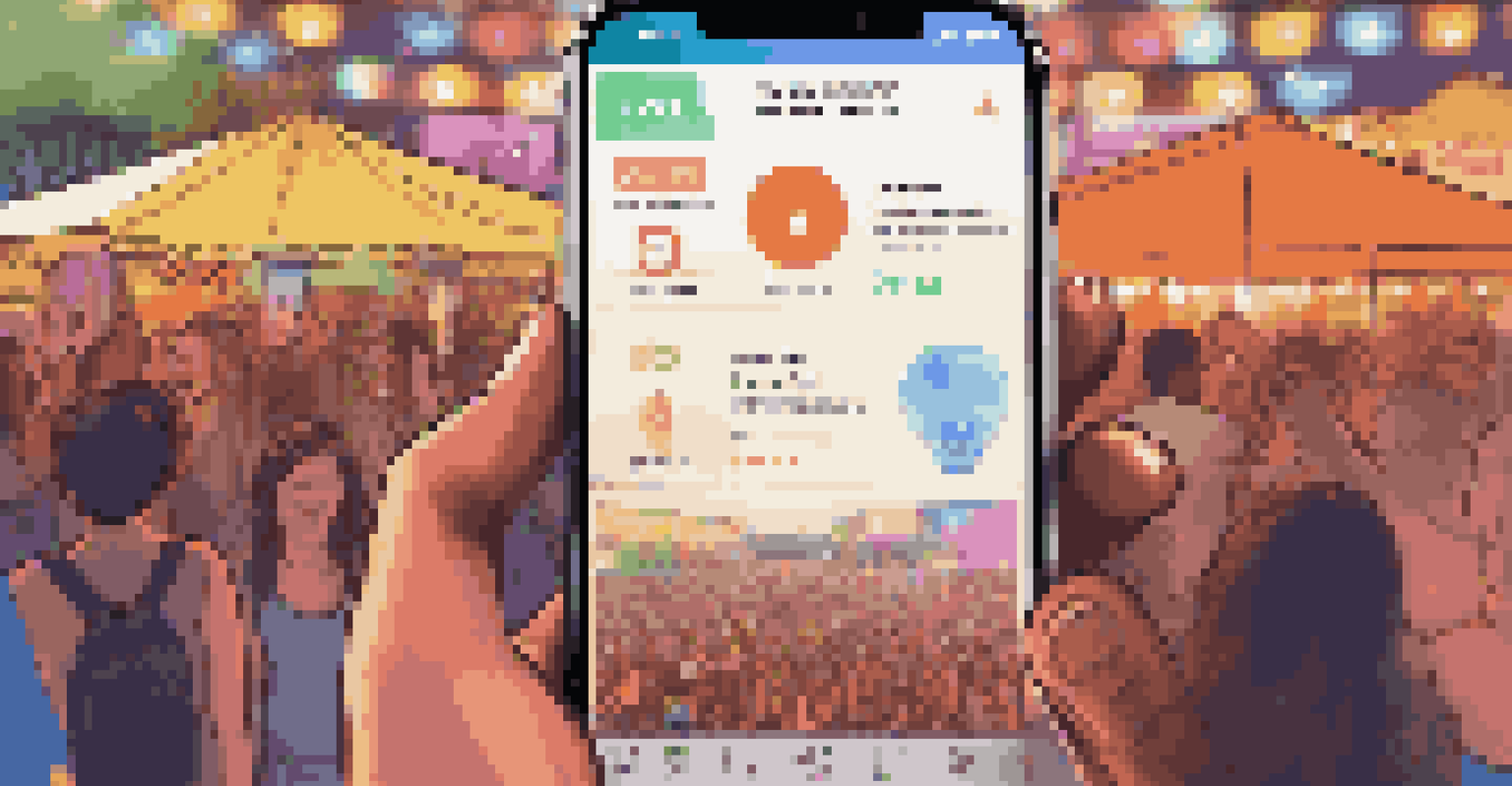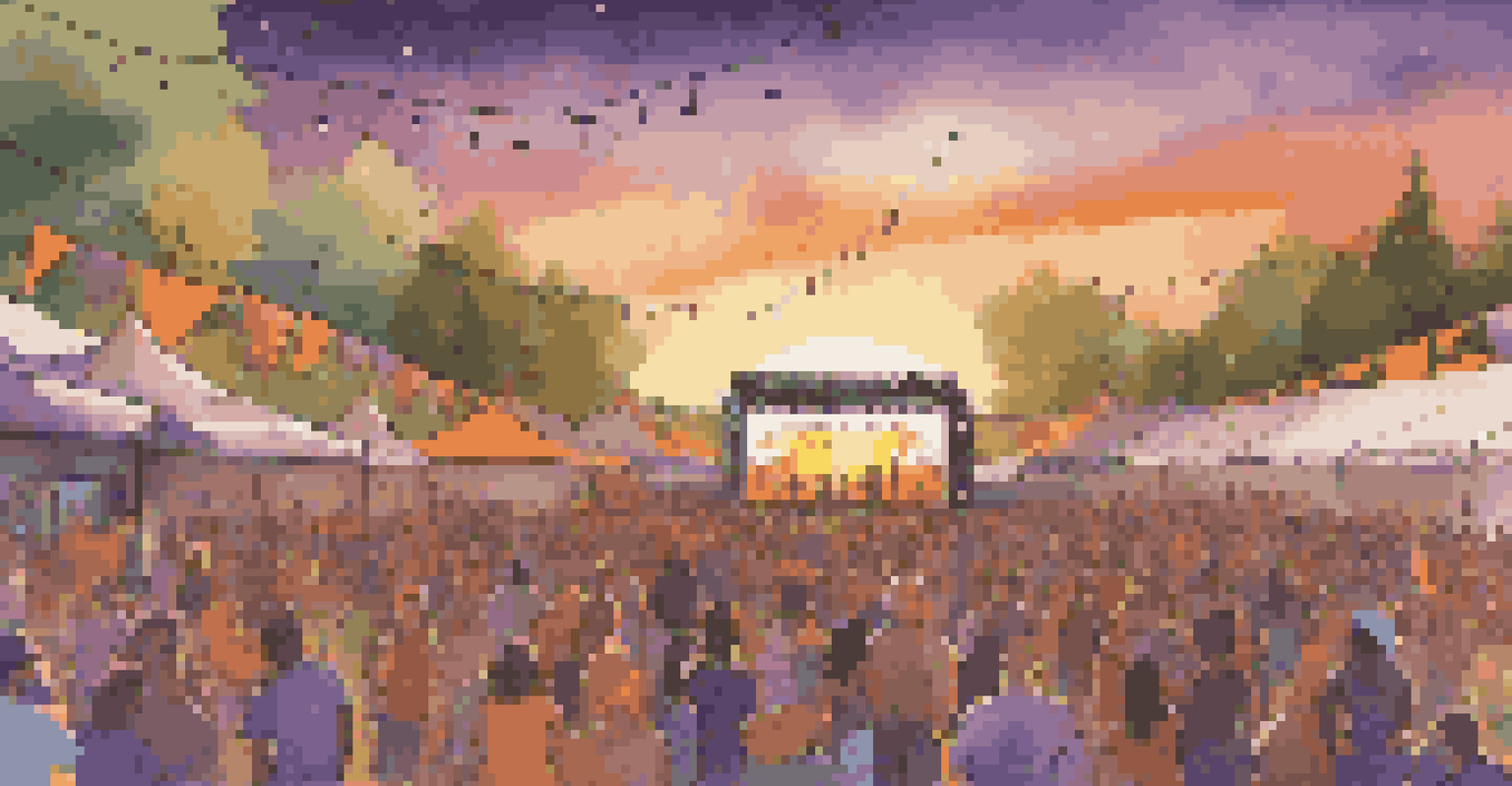The Future of Music Festivals: Technology and Virtual Events

The Rise of Virtual Music Festivals in a Digital Age
As technology continues to advance, virtual music festivals have gained popularity, offering fans a new way to experience live performances from the comfort of their homes. Events like Fortnite's virtual concerts and Coachella's online streams have set the stage for this trend. These festivals not only reduce geographical barriers but also allow for innovative interactions through gaming platforms.
Technology is best when it brings people together.
The immersive experience of virtual festivals is enhanced by technologies such as augmented reality (AR) and virtual reality (VR). Imagine attending a festival where you can interact with holographic performances or explore a digital landscape designed just for the event. This level of engagement is something traditional festivals struggle to replicate.
Moreover, virtual festivals can be more inclusive by catering to diverse audiences, including those with disabilities or financial constraints. With lower costs and no travel required, more people can enjoy the music and atmosphere, fostering a sense of community that transcends physical limitations.
Innovative Technology Enhancing Live Music Experiences
In addition to virtual events, technology is transforming the live festival experience itself. From cashless payments to mobile apps for navigation and scheduling, attendees are enjoying a more seamless experience than ever before. Imagine using an app that updates you on set times and lets you order food without waiting in long lines.

Furthermore, advancements in sound technology are elevating the quality of live performances. With spatial audio systems, fans can enjoy an immersive sound experience, making them feel like they're at the center of the action. This technology brings a new dimension to music, enhancing how we perceive live performances.
Virtual Festivals Break Barriers
Virtual music festivals enhance accessibility, allowing fans from diverse backgrounds to enjoy live performances from home.
Sustainability has also become a priority at music festivals, with tech playing a key role. Solar-powered stages and smart waste management systems are just a couple of examples of how festivals are becoming more eco-conscious. This commitment to sustainability resonates with younger audiences who prioritize environmental responsibility.
The Role of Social Media in Shaping Festival Culture
Social media has become an integral part of the music festival experience, influencing not only how fans engage with events but also how festivals market themselves. Platforms like Instagram and TikTok serve as powerful tools for sharing moments and connecting with other fans, creating a buzz around upcoming festivals. The hashtag culture helps build community and excitement.
The future belongs to those who believe in the beauty of their dreams.
Influencers and artists utilize these platforms to promote their appearances, leading to greater visibility and ticket sales. Behind-the-scenes content, live updates, and fan interactions help create a sense of belonging that extends beyond the festival grounds. This social media presence can turn a festival into a trending topic almost overnight.
Moreover, social media allows festivals to gather real-time feedback from attendees, enabling them to adapt and improve future experiences. By listening to their audience, festivals can create a more personalized and engaging atmosphere, ensuring fans keep coming back year after year.
Hybrid Events: The Best of Both Worlds
Hybrid events are emerging as a popular format in the festival scene, combining in-person and virtual experiences to cater to a broader audience. This approach allows fans who can’t attend physically to still partake in the excitement through live streams and interactive online features. It’s a win-win situation for both organizers and attendees.
For example, a festival might host a limited number of in-person tickets while providing a virtual option for those who prefer to experience the event from home. This flexibility opens the door for greater attendance and inclusivity, ensuring that more fans can enjoy the music they love.
Technology Transforms Live Experiences
Innovations like cashless payments and spatial audio enrich the live festival experience, making it more enjoyable and efficient for attendees.
As hybrid events become more commonplace, we're likely to see even more innovative ways to blend both experiences. Interactive elements, such as virtual meet-and-greets with artists or live Q&A sessions, can enhance the festival experience for remote attendees, making them feel just as involved as those on-site.
Personalization Through Data and AI Technology
With the rise of big data and artificial intelligence (AI), music festivals are tapping into these technologies to create personalized experiences for attendees. By analyzing past behaviors and preferences, festivals can tailor recommendations for artists, stages, and even merchandise. This data-driven approach adds a unique touch to each attendee's festival journey.
For instance, an AI-powered app could suggest which acts to see based on your music preferences and schedule, maximizing your enjoyment. This kind of personalization not only enhances the individual experience but also increases overall satisfaction, encouraging attendees to return in the future.
As technology continues to evolve, we can expect even more sophisticated personalization options. Imagine receiving real-time notifications about surprise guest appearances or special offers on your favorite food stalls, making your festival experience truly one-of-a-kind.
The Impact of Blockchain on Ticketing and Security
Blockchain technology is making waves in the festival industry, particularly in ticketing and security. By using blockchain, festivals can create secure and transparent ticketing systems, reducing the risk of fraud and scalping. This ensures that fans are purchasing authentic tickets at fair prices, enhancing trust in the ticketing process.
Moreover, blockchain can streamline the entry process at festivals. With digital tickets stored on the blockchain, attendees can enter venues more quickly and efficiently, avoiding long lines and delays. This seamless entry experience contributes to a more enjoyable festival atmosphere.
Social Media Shapes Festival Culture
Platforms like Instagram and TikTok play a crucial role in marketing festivals and fostering community engagement among fans.
As festivals increasingly adopt blockchain technology, we can anticipate a shift towards more secure and user-friendly ticketing solutions. This innovation not only benefits attendees but also helps organizers manage their events more effectively.
The Future of Music Festivals: Trends to Watch
Looking ahead, music festivals are likely to continue evolving, with technology at the forefront of this transformation. Trends such as increased hybrid events, enhanced personalization, and the integration of sustainable practices will shape the future landscape of festivals. These changes aim to create more inclusive and engaging experiences for all attendees.
Additionally, as new technologies emerge, we can expect to see even more innovative ideas that redefine how we experience music festivals. From advanced VR experiences to AI-driven artist collaborations, the possibilities are endless, ensuring that the excitement of live music continues to thrive.

Ultimately, the future of music festivals will be about balancing tradition and innovation. While the core essence of gathering to celebrate music will remain, the ways in which we participate will continue to evolve, making every festival a unique and memorable experience.